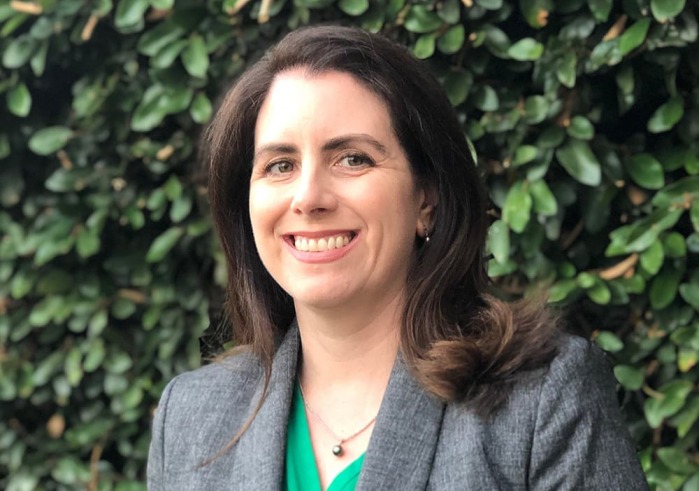Prof. Karen Moran Jackson Awarded AERA Fellowship to Study Deeper Learning

Karen Moran Jackson, assistant professor of educational psychology and assessment, has received a fellowship from the American Educational Research Association to advance her research on deeper learning in secondary schools.
One of five fellows chosen from a highly competitive pool of early career scholars, Prof. Moran Jackson will build her research on the American Institutes for Research (AIR) Study of Deeper Learning data set.
Fellows receive $25,000 in research support and work closely with AIR scientists and other scholars to analyze the data and shape their research. They also have opportunities to participate in research training activities, small conferences, and the AERA Annual Meeting.
Made possible by a $1.5 million grant from the William and Flora Hewlett Foundation, the fellowships aim to create a community of scholars studying the Deeper Learning model and a body of research related to the data. Each fellow is developing a research project focused on students, teachers, and schools that implement the Deeper Learning model.
SUA spoke with Prof. Moran Jackson about her project and the award.
How do you define deeper learning, and how long has it been a topic researchers have studied?
Deeper learning theory investigates the development of learning competencies in children that prepare them for dynamic future environments. We know students need more than surface level knowledge, so deeper learning in schools emphasizes experiences that develop cognitive and critical thinking skills, interpersonal abilities, and self-knowledge.
All of these competencies have been discussed in education for years. But the current line of research looks at how schools can create meaningful educational experiences that further these competencies with an understanding of ensuring educational equity.
What sparked your own interest in the topic?
I have always been interested in how we teach not only class content knowledge, but also skills students can use either in their own lives and in their future work. Also, the data for this study come from secondary schools similar to the school I first taught at that used alternative assessments, like portfolios and presentations.
My experience teaching at that school was really joyful because of the emphasis we had on student development and growth, beyond test score achievement. So I really liked the idea of being able to do research on a set of schools that had a similar mission.
Tell us about the research you will be doing as an AERA Fellow.
The AIR’s Deeper Learning dataset contains information on a group of US secondary schools that have implemented missions and structures to promote deeper levels of learning for their students. My study will explore what classroom assessments look like in these schools and how teachers think their values align with assessments. The research will use a mixed-methods design, addressing research questions with qualitative and quantitative data from several sources such as teacher interviews, administrator interviews, and student surveys. The findings will hopefully extend the research literature on teacher assessment attitudes and practices in secondary schools and may explain how school structures can encourage the use of alternative assessment strategies.
Are there conflicts between assessment tests and teacher values?
Not necessarily. There are different types of school-based assessments, just as there are different values teachers hold onto. Where there can be conflict is when a school system encourages a type of assessment that does not align with teacher values. For example, some teachers don’t believe in ranking students, yet the schools they work in might conduct assessments that require ranking students. Other teachers might be in schools where there is no standardized testing, yet they might value the type of comparative data that such testing can provide teachers. I am interested in how teachers think about their values in relation to the types of assessments they either elect to use with their students or might be required to administer.
How long do you expect this research to take, and is it part of a larger ongoing study?
This is broadly part of another study as it uses data already collected. The AIR collected data on 20 high schools in the US that implemented aspects of a deeper learning framework. I will be reading and analyzing the interviews AIR conducted with teachers and administrators working at those schools, as well as survey data. The fellowship is scheduled to last a year and a half.
